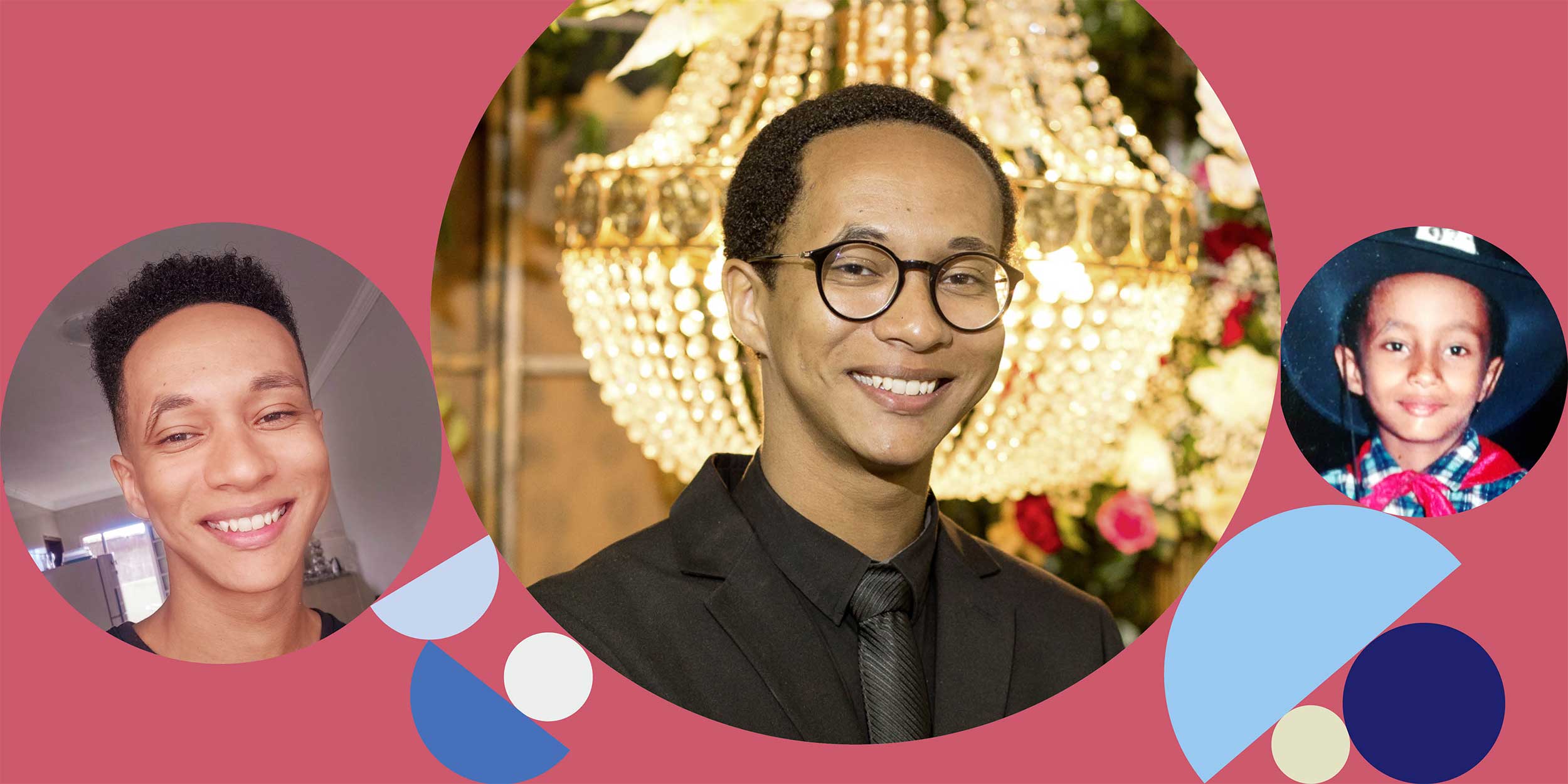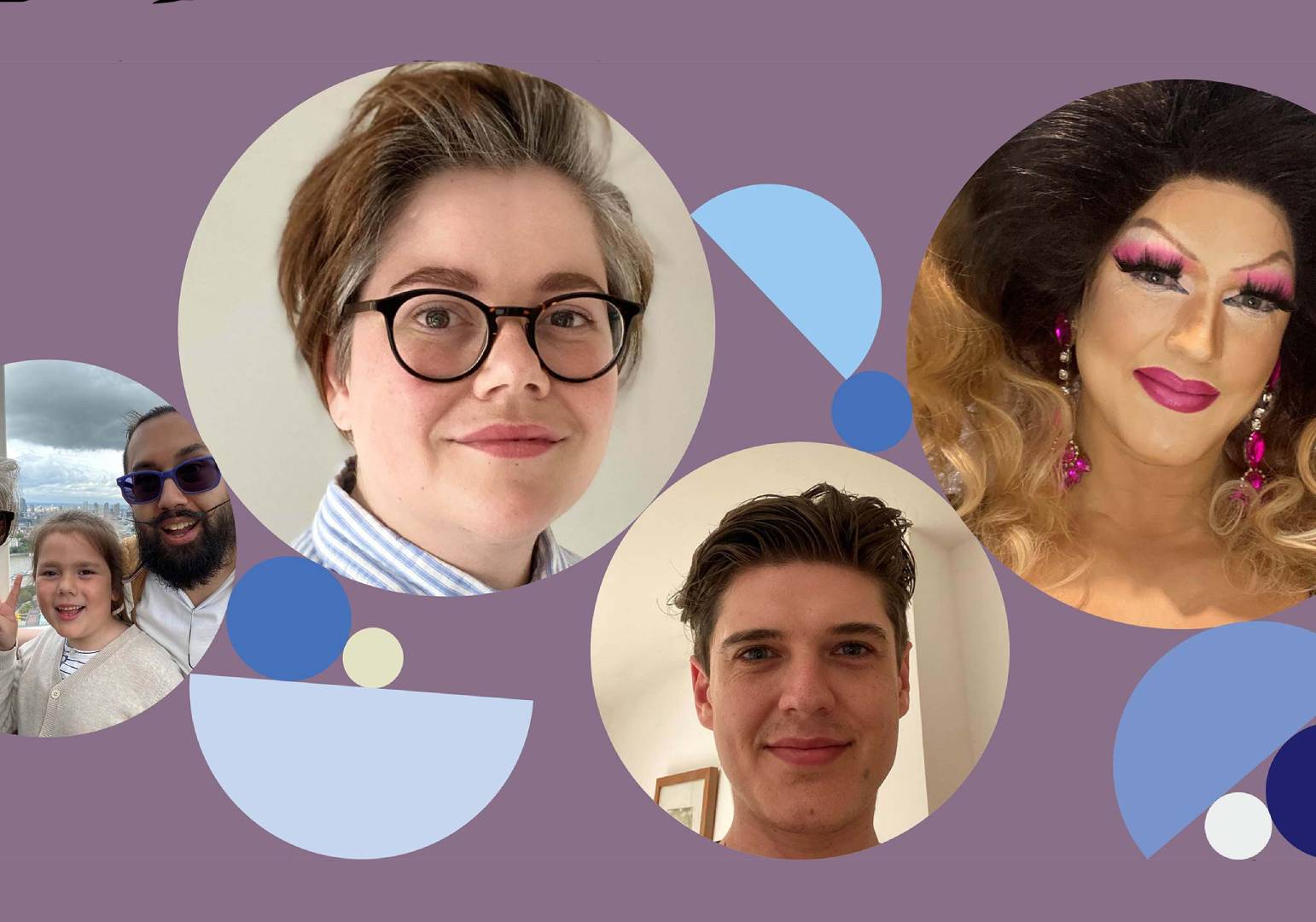Gay, Black, and poor: How early struggles strengthened a gay man’s resilience
PeopleArticleAugust 19, 20216 min read
Born of a childhood with few advantages and aggression towards his sexual orientation has helped Phil Rodrigues deal with the challenges of coming out as a gay. And in a country where gay rights aren’t always easily won, he says it’s time to stand up for a better society.
Growing up in a large family with his mother as the sole provider, Phil Rodrigues was familiar with adversity. Life was not easy in the busy port city of Belém in northern Brazil.
“I come from a poor family and did not know my father,” he recalls. “My mother was the only one who could earn money to support a family of 10.”
What he didn’t know then was that the kind of resilience it took to make it through a tough childhood would serve him well later in life, when he would face further challenges because of his sexual orientation.
If there were ever a recipe for resilience, the ingredients of Phil’s life were in it. “Gay, Black, and poor. All of my struggles have made me stronger.”
“My mother raised me, my brother and our cousins. She was our financial and emotional provider,” Phil remembers. “She had to leave her job to take care of my grandmother, who became ill and later died. My mother took several jobs as a manicurist, wash woman and others to support us.”
When his brother, who is 10 years older, found work, Phil was able to focus on his education and complete his studies before he, too, found a job to help out.
Now, in the early years of his career, working as an assessor with Zurich Brasil in the northeastern city of Recife, Phil looks back on a life that saw him bullied as a child and taunted as a young adult because of his sexual orientation. “I didn’t suffer violence, but there was a lot of verbal aggression,” he says.
Growing pains
As a youngster, many of his friends were girls and Phil acknowledges he was somewhat effeminate. “At the time, I thought I was straight,” he says, “and the verbal insults – ‘fag’ and ‘you’re gay’ – didn’t bother me. The girls stood up for me.”
Sadly, bullying is not uncommon in Brazil, Phil says. “Any boy who is effeminate will suffer bullying in school. In my case, I played soccer with the boys until I just didn’t feel comfortable any longer. I related more to the girls; they were the people I connected with.”
He understands now that his sexual orientation was forming at the time, and he passed through a phase where he believed he was bisexual. By the time he was 17, he understood that he was gay. And he decided to let the world know.
Some of the boys he grew up with abandoned him. “It was really sad, I considered them my best friends. I didn’t understand their decision, but I accepted it. I am who I am.”
Phil’s mother took the news hard. “When I was younger, she wanted me to be a priest and when I told her I was gay, it was really difficult for her to understand. She said, ‘Ok, but don’t act like a girl, don’t transform into a woman and don’t tell anyone.’ I told her, ‘My close friends already know.’”
Learning he was gay did not dampen his mother’s love for him. “Our relationship is great,” Phil says. “Even during that period, we were really close. There were some long discussions, but now everything is fine.”
The sneers about his sexual orientation didn’t stop when he entered college, Phil recalls. And they weren’t coming from students. “I learned after graduating that some of the teachers were calling the gay students ‘faggy’ and insulting us behind our backs.”
Fighting for acceptance
Society’s attitude towards LGBT+ lifestyles in Brazil “is complicated,” according to Phil. “It’s not entirely open,” he explains, but not completely closed, either. The country’s conservative presidential administration has not inspired acceptance of the gay community, he says, but elections next year could change that dynamic.
Brazil has room to grow when it comes to gay rights, Phil says, but there has been progress in recent years. “We have the right to marry same sex and retain the same rights as straight couples. There is also now the opportunity for gays to donate blood. We weren’t able to do that before.”
Being gay in Brazil is about more than a lifestyle, Phil emphasizes, and it will take action to make sure things get better for the LGBT+ community. “It’s about standing up for a better society and it’s about our rights, taking a political and social stance. It’s about being respected as a person and it’s about being a fighter for the things we believe in.”
Taking Pride in his work
At Zurich, Phil has found acceptance among his coworkers and a refreshing comradery in the company’s Pride@Zurich alliance of LGBT+ networks. Pride members around the world have a safe environment to connect with each other on LGBT+ topics.
“I joined Pride when I joined the company; it was one of the first things I did,” Phil says. The Pride group of 53 coworkers has been sidelined by COVID-19 restrictions, which has hit Brazil particularly hard and their activities have been limited. “We’re taking action to make Pride more visible here and make it appealing to people who are not gay. We have been 100 percent online this year, but next year we are hoping for the new normal that will allow us to be much more active.”
Like many others who have struggled on the path to discovering their sexuality, Phil found the road rocky in places. And while there are challenges ahead in the fight for equal treatment for LGBT+ people, he has found some solace as a young adult at a company that respects his choices.
“Being gay is not the main thing that has made me resilient,” Phil says. “It is one of many things, my childhood and the bullying among them, that have helped shape my personality and character, bringing me to where I am today.”

